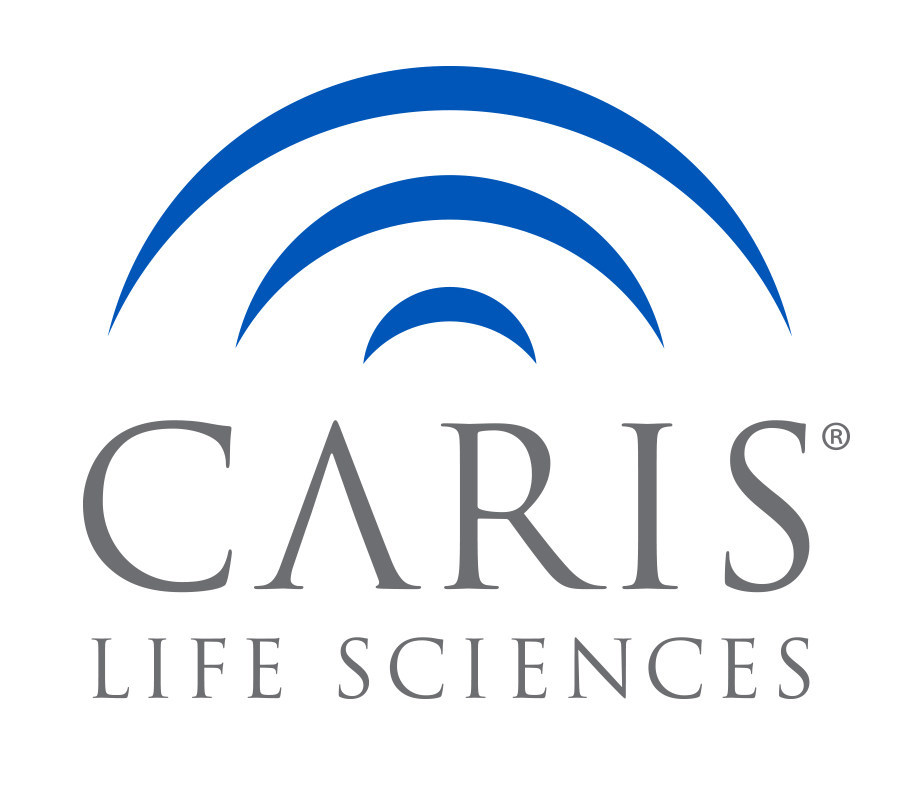IRVING, Texas, Dec. 19, 2024 -- Caris Life Sciences® (Caris), a leading next-generation AI TechBio company and precision medicine pioneer, proudly announced publishing more than 1,000 studies across peer-reviewed manuscripts, posters and abstracts since 2015, in collaboration with its research partners. This achievement underscores Caris' unwavering commitment to advancing the field of precision medicine and improving patient outcomes through innovative molecular science and artificial intelligence. In 2024 alone, Caris published more than 70 studies in peer-reviewed manuscripts and more than 120 posters and abstracts in collaboration with leading cancer centers, including those within the Caris Precision Oncology Alliance™ (Caris POA).
"Reaching this milestone is a testament to our team's dedication to advancing science and global knowledge of cancer biology through our collaborations with leading cancer centers and research institutions," said Caris President David Spetzler, MS, PhD, MBA. "We are excited to continue pushing the boundaries of precision medicine and contributing valuable insights to the scientific community. Great science takes a team effort. The combination of clinical experts, tumor biologists and data scientists highlights the power of the Caris POA to drive innovation."
Caris' extensive work includes groundbreaking research in comprehensive molecular profiling for both tissue and blood samples, the clinical value of liquid biopsies and the identification of clonal hematopoiesis. These contributions have been published in scientific journals and presented at prestigious conferences and symposiums, highlighting Caris' role as a leader in precision oncology.
"We are honored to share our findings with the global scientific community and to collaborate with our partners to advance the understanding and treatment of cancer," said George W. Sledge, Jr., MD, EVP and Chief Medical Officer of Caris. "Our goal is to provide clinicians and patients with the highest quality information to guide personalized treatment plans and improve outcomes."
Notable scientific publications in 2024 include:
- Nature Cancer: Tissue-specific thresholds of mutation burden associated with anti-PD-1/L1 therapy benefit and prognosis in microsatellite-stable cancers. By leveraging the whole-exome sequencing-based TMB (tumor mutation burden) coupled with real-world clinical data from over 70,000 patients, Caris and POA researchers demonstrated that TMB thresholds predicting anti-PD-1/L1 immunotherapies differ by cancer type, offering deeper insights into using TMB to guide therapy.
- Cancer Cell: Mutation burden and anti-PD-1 outcomes are not universally associated with immune cell infiltration or lymphoid activation. Researchers at Caris and the Caris POA explored immune profiles from data generated by WES and WTS, IHC and immune infiltration analysis. The study highlights the complexity and cancer type-specificity of immune markers associated with outcomes from anti-PD-1 therapies, revealing that TMB does not consistently correlate with immune cell infiltration or lymphoid activation across different malignancies, emphasizing the need for a multiomic approach.
- JCO Precision Oncology: Analysis of Concordance Between Next-Generation Sequencing Assessment of Microsatellite Instability and Immunohistochemistry-Mismatch Repair From Solid Tumors. The study showcases the extremely high concordance between next-generation sequencing-based MSI and immunohistochemistry-based MMR measurements across more than 190,000 patients. Importantly, NGS-MSI could detect certain mismatch repair deficiencies that IHC-MMR missed, and vice versa, highlighting the power of NGS testing.
- European Urology: Correlative Analysis of ATM, RB1, ERCC2, and FANCC Mutations and Pathologic Complete Response After Neoadjuvant Chemotherapy in Patients with Muscle-invasive Bladder Cancer: Results from the SWOG S1314 Trial. Caris' next-generation sequencing platform highlighted the predictive value of key gene alterations in bladder cancer. The results from the trial provide important insight on incorporating genetic profiling in cancer treatment.
- Journal of Clinical Investigation: Renal cell carcinoma histologic subtypes exhibit distinct transcriptional profiles. Caris and collaborators within the Caris POA used WES and WTS to identify distinct molecular profiles that differentiate main subtypes of RCC, highlighting that molecular insights from the comprehensive molecular data can guide individualized, histology-specific treatment strategies.
- Clinical Cancer Research: Clinical and Genomic Features of Classical and Basal Transcriptional Subtypes in Pancreatic Cancer. Utilizing WTS and real-world outcomes data, the study characterizes differential outcomes from a large cohort of more than 8,000 pancreatic cancer patients by classifying tumors into distinct transcriptional subtypes, which can serve as a strong independent predictor of outcomes.
The Caris POA is a growing network of leading cancer centers and research consortia worldwide that collaborate to advance precision oncology and biomarker-driven research. Its members work together to establish and optimize standards of care for molecular testing through innovative research to improve clinical outcomes for cancer patients.
About Caris Life Sciences
Caris Life Sciences® (Caris) is a leading next-generation AI TechBio company and precision medicine pioneer that is actively developing and delivering innovative solutions to revolutionize healthcare and improve the human condition. Through comprehensive molecular profiling (Whole Exome and Whole Transcriptome Sequencing) and the application of advanced AI and machine learning algorithms, Caris has created the large-scale, multimodal database and computing capability needed to analyze and unravel the molecular complexity of disease. This convergence of sequencing power, big data and AI technologies provides an unmatched platform to deliver the next generation of precision medicine tools for early detection, diagnosis, monitoring, therapy selection and drug development.
Caris was founded with a vision to realize the potential of precision medicine in order to improve the human condition, and we value our employees as much as we do our patients of every creed, color, sex, sexual orientation and religion. Headquartered in Irving, Texas, Caris has offices in Phoenix, New York, Cambridge (MA), Tokyo, Japan and Basel, Switzerland. Caris or its distributor partners provide services in the U.S., Europe, Asia and other international markets. To learn more, please visit CarisLifeSciences.com.
Caris Life Sciences
This News is brought to you by Qube Mark, your trusted source for the latest updates and insights in marketing technology. Stay tuned for more groundbreaking innovations in the world of technology.









